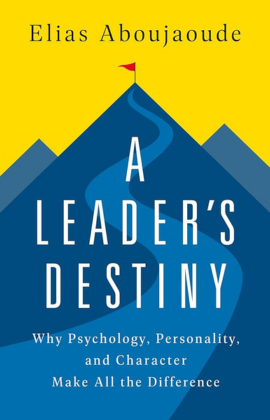Dr. Elias Aboujaoude is a psychiatry professor, researcher, and author at Stanford University, where he heads the Anxiety Disorders Section and OCD Clinic. He has also held positions at Cedars-Sinai Medical Center, the University of California in Berkeley, the University of California in San Francisco, and the University of York in the United Kingdom. Besides OCD, Dr. Aboujaoude’s research has focused on the interface between technology and psychology, both in its negative manifestations (e.g., video game addiction, online narcissism, cyberbullying, effects of online privacy violations) and positive applications (e.g., telemedicine, virtual reality therapy, AI-mediated digital therapeutics). His entrepreneurial projects include cofounding the first Silicon Valley video-enabled therapy platform.
In addition to peer-reviewed scientific publications and academic books, Dr. Aboujaoude has authored general-audience books, including Virtually You: The Dangerous Powers of the e-Personality (a New York Times Editors’ Choice) and articles for the Wall Street Journal, USA Today, the Harvard Business Review, the Financial Times, the Chronicle of Higher Education, and Fortune. His work has received broad coverage, including by the New York Times, the Wall Street Journal, the Washington Post, National Geographic, TIME, Newsweek, Congressional Quarterly, NPR, CNN, ABC, NBC, and BBC. He has lectured in over 20 countries, including at scientific, specialty, or general-audience events (e.g., World Psychiatric Association, US Department of Defense, University of Miami convocation, Stanford Alumni Association).
About A Leader’s Destiny
Elias Aboujaoude’s distinctive exploration of leadership explains how our cultlike obsession with leadership gives narcissists and sociopaths an edge and results in leadership failure everywhere we look—and how resisting the imperative to rise at all costs leaves many with an inferiority complex.
His takedown of the leadership industrial complex pokes a very sharp elbow into an industry seemingly united in a modern form of alchemy to create leadership gold—a waste of time and money, Aboujaoude vividly illustrates, since leaders emerge from a unique combination of personal, psychological, and situational factors that cannot be easily controlled or manipulated, no matter how gifted the executive coach.
This bracing take on a classic subject provides new insight into the way psychology aligns with the requirements of effective and happy leadership. The result is to empower us to understand ourselves and step up if we have what it takes to lead—or find equally rewarding, often superior, ways to achieve fulfillment if we don’t.


